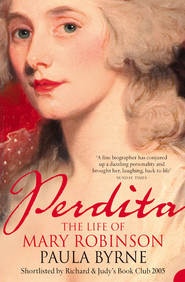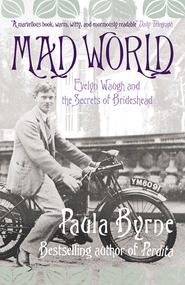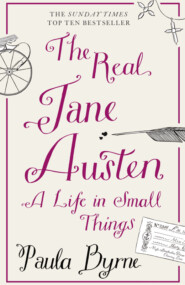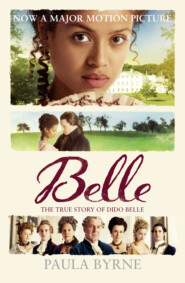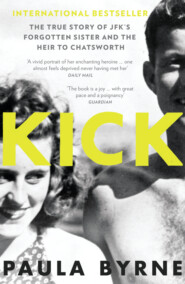По всем вопросам обращайтесь на: info@litportal.ru
(©) 2003-2024.
✖
The Genius of Jane Austen: Her Love of Theatre and Why She Is a Hit in Hollywood
Настройки чтения
Размер шрифта
Высота строк
Поля
Such was poor woman’s lot – whilst tyrant men
At once possessors of the sword and pen
All female claim with stern pedantic pride
To prudence, truth and secrecy denied,
Covered their tyranny with specious words
And called themselves creation’s mighty lords –
But thank our happier Stars, those times are o’er;
And woman holds a second place no more.
Now forced to quit their long held usurpation,
Men all wise, these ‘Lords of the Creation’!
To our superior sway themselves submit,
Slaves to our charms, and vassals to our wit;
We can with ease their ev’ry sense beguile,
And melt their Resolutions with a smile.30 (#litres_trial_promo)
Jane Austen’s most expressive battle-of-the-sexes debate, that between Anne Elliot and Captain Harville in Persuasion, curiously echoes James Austen’s epilogue. Denied the ‘exertion’ of the battlefield and a ‘profession’, women have been forced to live quietly. James’s remonstrance that ‘Tyrant men [are] at once possessors of the sword and pen’ is more gently reiterated in Anne Elliot’s claim that ‘Men have had every advantage of us in telling their story … the pen has been in their hands’ (P, p. 234).
There were two performances of The Wonder after Christmas. The evident success of the play was followed up in the new year by a production of Garrick’s adaptation of The Chances (1754), for which James, once again, wrote a prologue. This play was to be Eliza’s final performance for some time.
Once again James and Henry chose a racy comedy: originally written by Beaumont and Fletcher, the play had been altered by the Duke of Buckingham and in 1754 ‘new-dressed’ by Garrick. Although Garrick had made a concerted effort to tone it down, the play was still considered to contain strong dialogue. So thought Mrs Inchbald in her Remarks, which prefaced her edition of the play: ‘That Garrick, to the delicacy of improved taste, was compelled to sacrifice much of their libertine dialogue, may well be suspected, by the remainder which he spared.’31 (#litres_trial_promo)
The Austen family did not share such compunction. Like The Wonder, Garrick’s play depicts jealous lovers, secret marriages and confused identities. The two heroines, both confusingly called Constantia, are mistaken for one another. The first Constantia is mistaken for a prostitute, although she is in fact secretly married to the Duke of Naples. It is likely that the feisty Eliza played the role of the low-born ‘second Constantia’, a favourite of the great comic actress Mrs Jordan.
Eliza had played her last role, as the return of Mr Austen’s pupils in the new year signified her imminent removal from Steventon. Both James and Henry Austen were ‘fascinated’ by the flirtatious Eliza, according to James’s son, who wrote the first memoir of Jane Austen. Most critics and biographers accept that a flirtation between Henry and Eliza was begun around this time and resulted eventually in their marriage ten years later. Some critics have conjectured that the flirtation which the young Jane Austen witnessed between Henry and Eliza during rehearsals may have given her the idea for the flirtation between Henry Crawford and Maria Bertram in Mansfield Park.32 (#litres_trial_promo) That the young girl was acutely aware of the flirtation seems clear from one of her short tales, ‘Henry and Eliza’, where there are a series of elopements including one by Henry and Eliza, who run off together leaving only a curt note: ‘Madam, we are married and gone’ (MW, p. 36).
By all accounts, Jane Austen was an intelligent observer of the intrigues, emotions and excitement of private theatricals; of rehearsals, the reading over of scripts, and the casting of parts. James-Edward Austen’s Memoir claims that his aunt Jane ‘was an early observer, and it may be reasonably supposed that some of the incidents and feelings which are so vividly painted in the Mansfield Park theatricals are due to her recollection of these entertainments’.33 (#litres_trial_promo)
In Mansfield Park, Jane Austen devoted her creative energies to the rehearsal process rather than the performance. Furthermore the singular strength of the theatrical sequence lies in its depiction through the eyes of an envious observer. It has been suggested that in writing the Lovers’ Vows sequence Austen distilled some of her own experience as an outsider, a partially excluded younger sister.34 (#litres_trial_promo) There is, however, no evidence to suggest that Jane was excluded from the family theatricals. Even if her youth prevented her from taking part in the actual performances, she began, at this time, to write her own short playlets. These were probably performed as afterpieces to the main play.
Henry Fielding’s outrageous burlesque The Tragedy of Tom Thumb was ‘acted to a small circle of select friends’ on 22 March 1788 at Steventon, and this was followed some time later by ‘a private Theatrical Exhibition’. Regrettably, James’s prologue to the latter gives no indication of the play performed, though it imitates Jacques’s ‘seven ages of man’ speech. The prologue also satirises the hypocrisy of the sentimental age where ‘to talk affecting, when we do not feel’ is described as a form of ‘acting’.35 (#litres_trial_promo) The family perhaps wrote the entertainment themselves. It was probably at this time that Jane wrote and participated in her own burlesque playlet, ‘The Mystery’.36 (#litres_trial_promo)
The last plays performed at Steventon in 1788–89 were The Sultan: or A Peep into the Seraglio, a farce by Isaac Bickerstaffe, and another farce by James Townley, High Life Below Stairs. Bickerstaffe’s farce was first performed in London in 1775, but had only been recently published, in 1784. It was yet another comedy that depicted a bold, spirited heroine, posing a challenge to male prerogative and authority. Roxalana is an Englishwoman who has been captured for the Sultan’s seraglio. She displaces the favourite concubine, Elmira, by winning the honourable affections of the Sultan. Moreover, she condemns his harem and demands the freedom of all his wives: ‘You are the great Sultan; I am your slave, but I am also a free-born woman, prouder of that than all the pomp and splendour eastern monarchs can bestow.’37 (#litres_trial_promo) James’s epilogue was yet another provocative declaration of female superiority over men, opening with the words,
Lord help us! what strange foolish things are these men,
One good clever woman is fairly worth ten.38 (#litres_trial_promo)
Two of the most popular contemporary choices for private representation were Fielding’s Tom Thumb and Townley’s High Life Below Stairs. The Burneys acted Tom Thumb in Worcestershire in 1777, ten years before the Austens chose it for performance. The part of the diminutive hero Tom Thumb was often played by a child, whose high-pitched voice would add to the comic incongruity.39 (#litres_trial_promo)
James Townley’s satire on plebeian manners, High Life Below Stairs (1759), depicts a household of lazy servants who behave as badly as their masters. They ape their masters’ manners, assume their titles, drink their expensive wine, gamble and visit the theatre. Like Gay’s Beggar’s Opera and Foote’s Mayor of Garett, Townley’s farce was a comedy that used low life to criticise high society. It was also an extremely popular choice for amateur theatricals. In part, this was because it was more prudent to poke fun at the lower orders in the safety of one’s own home than in the professional theatre house. In 1793 a performance of High Life Below Stairs in an Edinburgh public theatre incited a row between a group of highly offended footmen and their masters.
George Colman the Younger’s comedy about social transformations, The Heir at Law, was also a popular choice for the gentry to indulge themselves in stereotypical ‘low’ roles. Austen was to explore this contentious issue in Mansfield Park when the heir of Mansfield insists on staging The Heir at Law so that he can play the stage Irishman, Duberley.
Jane’s playlet, ‘The Visit’, dedicated to James, contains a quotation from High Life Below Stairs, which suggests that she composed it around the same time as the family performance of Townley’s farce, perhaps as a burlesque afterpiece. Austen repeats Townley’s phrase, ‘The more free, the more welcome’, in her play. The allusion seems to be a nod to the main play performed that day at Steventon. Austen’s habit of repeating phrases from the plays performed, or even merely contemplated for performance, at Steventon remained with her for a long time. Though Hannah Cowley’s play Which is the Man? was considered for performance, it was finally rejected. Yet Austen quoted a phrase from it in a letter dated 1810, some twenty-nine years later.40 (#litres_trial_promo)
Which is the Man? is alluded to in Austen’s ‘The Three Sisters’, written around 1788–90 (MW, p. 65). In this story, a spoilt young woman demands to play the part of Lady Bell Bloomer, just as Eliza had wished to in the 1787–88 Christmas theatricals. Again, a quotation from Cowley’s popular comedy The Belle’s Stratagem appears in a letter of 1801: ‘Mr Doricourt has travelled; he knows best’ (Letters, p. 73).
Though Eliza was now in Paris and unable to partake in the Steventon theatricals, the Cooper cousins came to Steventon for Christmas 1788–89 and Jane Cooper filled the gap left by Eliza. In a letter to Philadelphia, Eliza had hastily, though wistfully, scribbled a last message: ‘I suppose you have had pressing accounts from Steventon, and that they have informed you of their theatrical performances, The Sultan & High Life below Stairs, Miss Cooper performed the part of Roxelana [sic] and Henry the Sultan, I hear that Henry is taller than ever.’41 (#litres_trial_promo) No prologue or epilogue by James has survived for High Life Below Stairs, but the prologue he provided for Bickerstaffe’s comedy is (confusingly) dated 1790 and states it was ‘spoken by Miss Cooper as Roxalana’.42 (#litres_trial_promo)
The Sultan and High Life Below Stairs ended the theatricals at Steventon, although there is a family tradition which claims that they were resumed in the late 1790s. The main reason why actor-manager James abandoned private theatricals seems to be that he was turning his mind to other literary interests, namely the production of a weekly magazine, The Loiterer. This periodical, like the theatricals at Steventon, was also to prove an important influence on Jane Austen’s early writings.
Henry Austen tells us in his ‘Biographical Notice’, published in the first edition of Northanger Abbey and Persuasion, that his sister Jane was acquainted with all the best authors at a very early age (NA, p. 7). The literary tastes of Catherine Morland have often been read as a parody of the author’s own literary preferences.43 (#litres_trial_promo) Catherine likes to read ‘poetry and plays, and things of that sort’, and while ‘in training for a heroine’, she reads ‘all such works as heroines must read to supply their memories with those quotations which are so serviceable and so soothing in the vicissitudes of their eventful lives’ (NA, p. 15): dramatic works, those of Shakespeare especially, are prominent among these. Twelfth Night, Othello and Measure for Measure are singled out. Catherine duly reads Shakespeare, alongside Pope, Gray and Thompson, not so much for pleasure and entertainment, as for gaining ‘a great store of information’ (NA, p. 16).
In Sense and Sensibility, Willoughby and the Dashwoods are to be found reading Hamlet aloud together. In Mansfield Park, the consummate actor Henry Crawford gives a rendering of Henry VIII that is described by Fanny Price, a lover of Shakespeare, as ‘truly dramatic’ (MP, p. 337). Henry memorably remarks that Shakespeare is ‘part of an Englishman’s constitution. His thoughts and beauties are so spread abroad that one touches them every where’. This sentiment is reiterated by Edmund when he notes that ‘we all talk Shakespeare, use his similes, and describe with his descriptions’ (MP, p. 338). Though Emma Woodhouse is not a great reader, she is found quoting passages on romantic love from Romeo and Juliet and A Midsummer Night’s Dream.
Henry and Edmund agree on very little. It is therefore a fair assumption that, when they do concur, they are voicing the opinion of their author. Their consciousness of how Shakespeare is assimilated into our very fibre, so that ‘one is intimate with him by instinct’, reaches to the essence of Jane Austen’s own relationship with him. She would have read the plays when a young woman, but she would also have absorbed famous lines and characters by osmosis, such was Shakespeare’s pervasiveness in the culture of the age. She quotes Shakespeare from memory, as can be judged by the way that she often misquotes him. Her surviving letters refer far more frequently to contemporary plays than Shakespearean ones, but Shakespeare’s influence on the drama of the late eighteenth and early nineteenth century was so thoroughgoing – for instance through the tradition of the ‘witty couple’, reaching back to Love’s Labour’s Lost and Much Ado About Nothing – that her indirect debt to his vision can be taken for granted.
In her earliest works, however, Jane Austen showed a certain irreverence for the national dramatist. Shakespeare’s history plays are used to great satirical effect in The History of England, a lampoon of Oliver Goldsmith’s abridged History of England. Austen mercilessly parodied Goldsmith’s arbitrary and indiscriminate merging of fact and fiction, in particular his reliance on Shakespeare’s history plays for supposedly authentic historical fact. Austen, by contrast, is being satirical when she makes a point of referring her readers to Shakespeare’s English history plays for ‘factual’ information about the lives of its monarchs.44 (#litres_trial_promo) Just as solemnly, she refers her readers to other popular historical plays, such as Nicholas Rowe’s Jane Shore and Sheridan’s The Critic (MW, pp. 140, 147). The tongue-in-cheek reference to Sheridan compounds the irony, as The Critic is itself a burlesque of historical tragedy that firmly eschews any intention of authenticity.
From such allusions in the juvenilia it is clear that Jane Austen was familiar with a wide range of plays, although these are probably only a fraction of the numerous plays that would have been read over as possible choices for the private theatricals, read aloud for family entertainment, or read for private enjoyment. While it is impossible to calculate the number of plays that she read as a young girl, since there is no extant record of Mr Austen’s ample library, the range of her explicit literary allusions gives us some idea of her extensive reading – references to over forty plays have been noted.45 (#litres_trial_promo)
Jane Austen owned a set of William Hayley’s Poems and Plays. Volumes one to five are inscribed ‘Jane Austen 1791’; volume six has a fuller inscription ‘Jane Austen, Steventon Sunday April the 3d. 1791’.46 (#litres_trial_promo) Hayley was well known as the ‘friend and biographer’ of William Cowper, Austen’s favourite poet, though he fancied himself as a successful playwright. The most well-thumbed volume in Austen’s collection of Hayley was the one containing his plays. It contained five dramas in all: two tragedies, Marcella and Lord Russel, and three comedies in verse, The Happy Prescription: or the Lady Relieved from her Lovers; The Two Connoisseurs; and The Mausoleum.47 (#litres_trial_promo)
Like the Sheridan plays which the Austens adored, Hayley’s comedies depict the folly of vanity and affectation in polite society. By far the best of them is The Mausoleum, which dramatises excessive sensibility and ‘false refinement’ in the characters of a beautiful young widow, Sophia Sentiment, and a pompous versifier, Mr Rumble, a caricature of Dr Johnson. Lady Sophia Sentiment erects a mausoleum to house her husband’s ashes and employs versifiers to compose tributes for the inscription on the monument. The comedy explores the self-destructive effects of sensibility on the mind of a lovely young widow, who refuses to overcome her grief because of a distorted conception of refined sentiment. The tell-tale sign of misplaced sensibility is Lady Sophia’s obsession with black:
If cards should be call’d for to-night,
Place the new japann’d tables alone in my sight;
For the pool of Quadrille set the black-bugle dish,
And remember you bring us the ebony fish.48 (#litres_trial_promo)
But this sentiment is amusingly undercut by its correlation to hypocrisy and false delicacy:
Her crisis is coming, without much delay;
There might have been doubts had she fix’d upon grey:
But a vow to wear black all the rest of her life
Is a strong inclination she’ll soon be a wife.49 (#litres_trial_promo)
This comedy is of particular interest as the main character has the name that was adopted in a satirical letter to James Austen in his capacity as editor of The Loiterer. The letter complains of the periodical’s lack of feminine interest:
Sir, I write this to inform you that you are very much out of my good graces, and that, if you do not mend your manners, I shall soon drop your acquaintance. You must know, Sir, that I am a great reader, and not to mention some hundred volumes of Novels and Plays, have in the two last summers, actually got through all the entertaining papers of our most celebrated periodical writers.50 (#litres_trial_promo)






